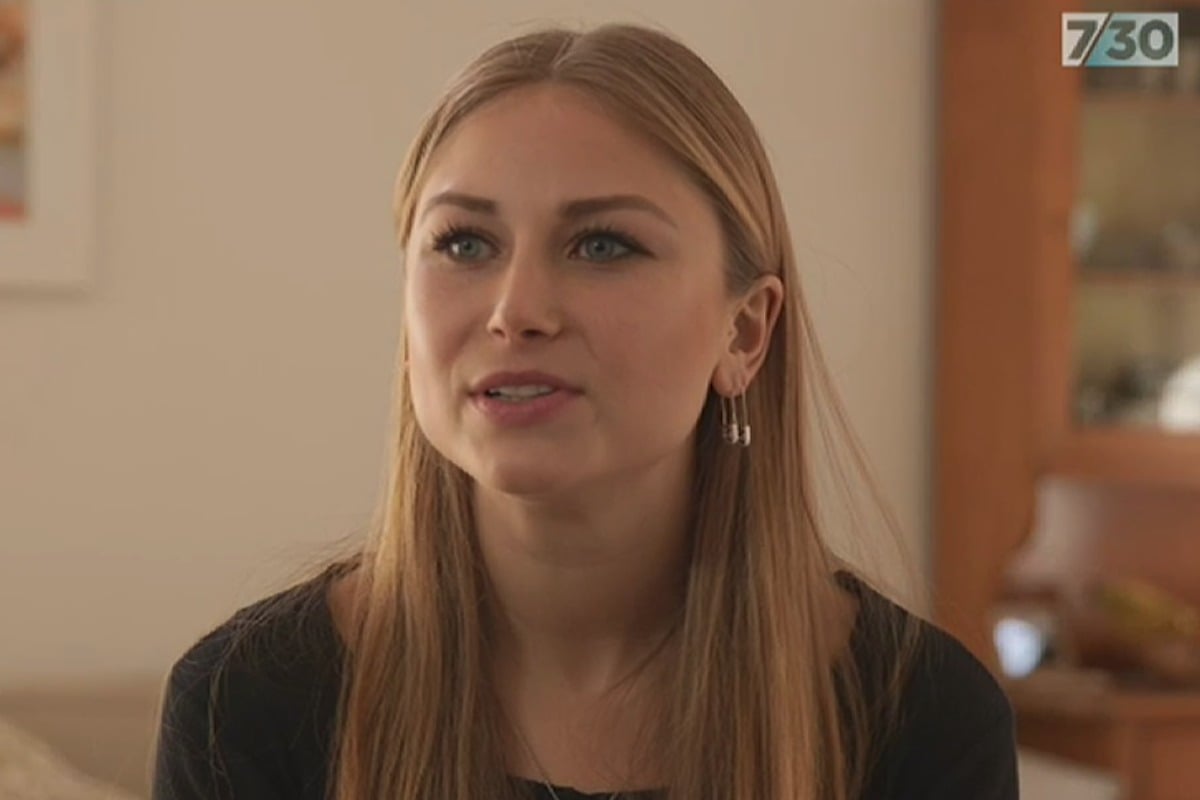
Warning: This article deals with rape and sexual assault and may be triggering for survivors of abuse.
In 2010, then-15-year-old Grace Tame was raped by her teacher. She’s been fighting to tell her story for two years, bound by law to remain anonymous.
Tonight on ABC’s 7.30, the 24-year-old was finally able to tell her story. One that her perpetrator, Nicolaas Ockert Bester, has been twisting for years.
Nine years ago, Bester played the role of supportive teacher to Grace during a vulnerable time. Grace was being treated for an eating disorder, which she opened up about during her one-on-one chats with the seemingly sympathetic 58-year-old.
She trusted him and began to confide in him. In turn, he gave her a key to his office, a place where she could retreat if she ever felt overwhelmed in the schoolyard.
They talked about her family. Her friends. Her insecurities.
But this wasn’t a concerned teacher reaching out to a vulnerable student. This was Bester grooming a teenager, and the beginning of several instances of sexual abuse that haunted the now 24-year-old through her formative years.
Bester repeatedly raped Grace at school. He’d rape her moments before the morning bell rang and she’d be forced to sit in his class as though nothing had happened.
Grace reported Bester’s crimes the following year, and when police arrested him, he was found with 28 images of child pornography on his computer.
He pleaded guilty to “maintaining a relationship with a young person” and possession of child exploitation material, and was convicted and sentenced to two years and 10 months in jail, but was released on parole after serving 19 months.

Top Comments